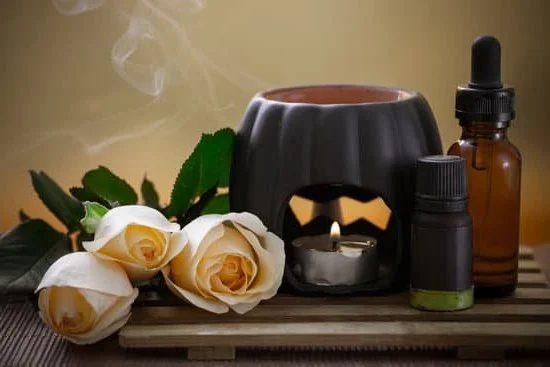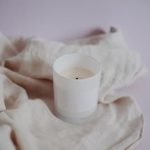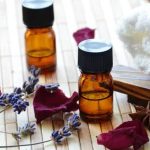Are aromatherapy diffusers harmful? Aromatherapy, the practice of using natural plant extracts to promote health and well-being, has gained popularity in recent years. One of the most common methods of enjoying the benefits of essential oils is through the use of aromatherapy diffusers. These devices are designed to disperse essential oils into the air, allowing the user to breathe in the aroma and potentially experience therapeutic effects.
Aromatherapy has been used for centuries as a holistic healing treatment, with its origins dating back to ancient civilizations. The practice is believed to have a range of physical and psychological benefits, including stress reduction, improved sleep quality, and enhanced mood. Aromatherapy diffusers are an increasingly popular way to enjoy these benefits in the comfort of one’s home or workspace.
While many people swear by the positive effects of aromatherapy and diffusers, there is also a growing concern about their potential harm. In this article, we will delve into the world of aromatherapy and explore whether diffusers pose any dangers to our health. We will discuss both the benefits of aromatherapy as well as potential risks and side effects that should be carefully considered before using these devices.
So, are aromatherapy diffusers harmful? Follow along as we investigate the myths and realities surrounding their safety and usage.
What Are Aromatherapy Diffusers?
Aromatherapy diffusers are devices that disperse essential oils into the air, allowing their aroma to fill a room or space. There are several different types of diffusers, including ultrasonic, nebulizing, heat, and evaporative diffusers. Each type works in a slightly different way, but the end result is the same: the dispersion of essential oil particles into the air.
Types of Aromatherapy Diffusers
- Ultrasonic diffusers use water and ultrasonic vibrations to disperse the essential oils into the air as a fine mist.
- Nebulizing diffusers do not use water and instead disperse pure essential oil particles into the air.
- Heat diffusers use heat to evaporate essential oils into the air.
- Evaporative diffusers use a fan to blow air through a pad or filter containing essential oils, causing them to evaporate more quickly.
How Aromatherapy Diffusers Work
Once the essential oils are dispersed into the air, they can be inhaled or absorbed through the skin. The aroma of the essential oils can have various effects on the body and mind, depending on the specific type of oil being used. Aromatherapy diffusers are popular for promoting relaxation, improving sleep quality, relieving stress and anxiety, and providing an overall sense of well-being.
The Benefits of Aromatherapy
Aromatherapy has been used for centuries as a natural way to promote healing and relaxation. The use of essential oils in aromatherapy has been known to have various benefits for both physical and mental wellbeing. One of the key benefits of aromatherapy is its ability to reduce stress and anxiety. Essential oils such as lavender, chamomile, and rose are known for their calming properties, which can help alleviate feelings of stress and promote a sense of peace and relaxation.
In addition to reducing stress, aromatherapy has also been found to improve sleep quality. Certain essential oils, such as lavender and cedarwood, have sedative effects that can help promote better sleep. Aromatherapy can also be used to boost mood and energy levels. Citrus scents like lemon and orange are known to have uplifting properties that can help increase alertness and energy.
Furthermore, aromatherapy has been used as a complementary therapy for various conditions such as headaches, migraines, and digestive issues. The use of specific essential oils in aromatherapy has been found to provide relief from these symptoms. Overall, the benefits of aromatherapy extend to promoting emotional balance, cognitive function, pain management, and immune support.
| Benefits | Examples of Essential Oils |
|---|---|
| Reduces Stress | Lavender, Chamomile, Rose |
| Improves Sleep Quality | Lavender, Cedarwood |
| Boosts Mood and Energy Levels | Lemon, Orange |
Are Aromatherapy Diffusers Harmful? Dispelling the Myths
There has been some debate and concern surrounding the use of aromatherapy diffusers and their potential harm to our health. However, it is important to dispel the myths and understand the actual facts when it comes to using these devices for aromatherapy.
First, it’s essential to recognize that properly using aromatherapy diffusers does not pose any significant harm. In fact, they can bring numerous benefits to our well-being, including stress relief, improved sleep, and relaxation. To clear up any misconceptions, let’s address some common myths associated with aromatherapy diffusers:
- Myth 1: Aromatherapy diffusers can cause respiratory issues
- Myth 2: Essential oils used in diffusers are harmful to pets
- Myth 3: Aromatherapy diffusers can trigger allergies or asthma attacks
The truth is that when used correctly and in moderation, aromatherapy diffusers are generally safe for most individuals. It’s crucial to follow proper usage guidelines and consider any potential risks or side effects before incorporating them into your wellness routine.
Potential Risks and Side Effects to Consider
Aromatherapy diffusers are generally safe to use, but it is important to consider the potential risks and side effects before using them. Some individuals may experience allergic reactions to certain essential oils, which can result in skin irritation or respiratory issues.
It is crucial to perform a patch test before using any new essential oil, especially if you have sensitive skin or respiratory conditions. Additionally, some essential oils can be toxic to pets, so it’s important to keep diffusers out of reach of animals.
Inhaling large amounts of certain essential oils through a diffuser can also lead to headaches, dizziness, or nausea for some people. This is why it’s important to use the recommended amount of essential oil in your diffuser and ensure that the room is properly ventilated. Overexposure to some essential oils can also cause irritation to the eyes and mucous membranes. It’s important to always follow the manufacturer’s instructions for your specific diffuser and essential oils.
Furthermore, pregnant women should exercise caution when using aromatherapy diffusers, as certain essential oils can potentially induce contractions or other adverse effects during pregnancy. Consulting with a healthcare professional before incorporating aromatherapy into your routine is advisable for individuals who are pregnant or have pre-existing medical conditions.
| Potential Risks | Considerations |
|---|---|
| Allergic Reactions | Perform patch test before use |
| Toxicity to Pets | Keep diffuser out of pet’s reach |
| Inhalation Effects | Use recommended amount; Proper ventilation |
| Pregnancy Considerations | Consult healthcare professional before use |
How to Use Aromatherapy Diffusers Safely
Aromatherapy diffusers are a popular way to enjoy the benefits of essential oils in a safe and effective manner. However, it is important to use these devices properly to ensure their safety and effectiveness. Here are some tips on how to use aromatherapy diffusers safely:
- Choose the right diffuser: There are several types of diffusers available, including ultrasonic, nebulizing, heat, and evaporative diffusers. Each type has its own set of pros and cons, so it’s important to choose one that suits your needs and preferences. Ultrasonic diffusers, for example, are great for dispersing a fine mist of essential oils into the air, while nebulizing diffusers are ideal for creating a more concentrated aroma.
- Use high-quality essential oils: Not all essential oils are created equal, so be sure to use pure, high-quality oils from reputable sources. Avoid synthetic fragrances or diluted oils, as these may not provide the same therapeutic benefits and could potentially be harmful when vaporized.
- Follow the manufacturer’s instructions: Different diffusers have different operating instructions, so be sure to read the manufacturer’s guidelines carefully before using your device. This will ensure that you use the diffuser correctly and minimize any potential risks associated with its use.
By following these tips, you can enjoy the many benefits of aromatherapy diffusers while minimizing any potential risks or side effects. Remember that safety should always be a top priority when using essential oils and aromatherapy devices.
Choosing the Right Essential Oils for Aromatherapy
When it comes to using aromatherapy diffusers, choosing the right essential oils is crucial for a safe and effective experience. With the wide variety of essential oils available, it’s important to understand their properties and potential effects on the body and mind.
Understanding Essential Oils
Essential oils are highly concentrated plant extracts that have been used for centuries for their various therapeutic benefits. They are derived from different parts of plants such as flowers, leaves, bark, and roots. Each essential oil contains unique compounds that contribute to its specific aroma and potential health effects.
Factors to Consider
When selecting essential oils for aromatherapy, it’s important to consider factors such as purity, quality, and intended use. Look for oils that are 100% pure and free from synthetic additives or contaminants. It’s also essential to choose oils that are suitable for the desired purpose, whether it’s relaxation, mood enhancement, or physical wellness.
Potential Risks
Some essential oils can cause adverse reactions in certain individuals. For example, citrus oils like lemon or lime can make the skin more sensitive to sunlight, while others may trigger allergic reactions or respiratory issues in some people. It’s important to research each oil before use to ensure it is safe for you and those around you.
By taking these considerations into account and doing thorough research on each essential oil before use, individuals can enjoy the benefits of aromatherapy diffusers while minimizing any potential risks associated with using essential oils.
Final Thoughts
In conclusion, the use of aromatherapy diffusers can be a safe and beneficial practice when done correctly. While there are some potential risks and side effects to consider, these can largely be avoided by using the diffusers responsibly and choosing the right essential oils for aromatherapy.
It is important to understand that the myths surrounding the harmful effects of aromatherapy diffusers are just that – myths. With proper knowledge and precautions, you can enjoy the benefits of aromatherapy without putting your health at risk.
When considering whether aromatherapy diffusers are harmful, it is important to recognize that individual reactions to essential oils may vary. Some people may be more sensitive to certain scents or oils, which could lead to adverse reactions. This is why it is crucial to do thorough research on essential oils before using them in a diffuser, as well as performing a patch test on your skin if you have concerns about allergic reactions.
Ultimately, the verdict on aromatherapy diffusers and safety is that they can be a valuable tool for promoting relaxation, reducing stress, improving sleep, and even providing relief from certain ailments. However, it is essential to use them with caution and follow best practices for safe usage.
By educating yourself on the potential risks, being mindful of how you use essential oils in your diffuser, and seeking advice from healthcare professionals if needed, you can safely incorporate aromatherapy into your wellness routine.
Frequently Asked Questions
Is It Safe to Breathe Essential Oils in a Diffuser?
Breathing essential oils in a diffuser is generally safe for most people when used as directed. However, it’s important to be cautious with the concentration and duration of use, especially for children, pregnant women, pets, and individuals with respiratory conditions. It’s always best to consult a healthcare professional before using essential oils in a diffuser.
What Are the Side Effects of Aromatherapy Diffusers?
While aromatherapy diffusers are generally safe when used properly, some individuals may experience side effects such as headaches, dizziness, skin irritation, or allergic reactions to specific essential oils. It’s crucial to use high-quality, pure essential oils and avoid overexposure to prevent these potential side effects.
Do Diffusers Have Harmful Chemicals?
Diffusers themselves do not contain harmful chemicals when they are well-made and used according to the manufacturer’s instructions. However, it’s important to be mindful of the quality of the essential oils being used in the diffuser as low-quality or adulterated oils can pose health risks.
Always read labels carefully and choose reputable sources for purchasing essential oils to ensure their safety.

Are you looking for a natural way to improve your health and wellbeing?
If so, aromatherapy may be the answer for you.





